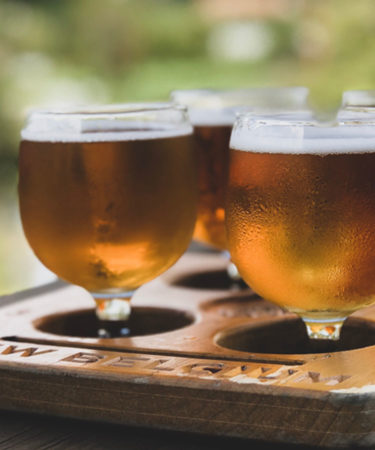Off-premise sales of craft flagship brands are in steep decline, according to a recent report from IRI Worldwide.
Boston Lager declined more than 14 percent last year. New Belgium’s Fat Tire fell more than 19 percent. Sierra Nevada Pale Ale, despite being the second-best-selling craft brand in the country, is also in decline, although that percentage was not available at press time.
After Yuengling, Boston Beer, Sierra Nevada, and New Belgium are the top-selling craft breweries in the country, according to the Brewers Association.
This is the dichotomy of the craft beer business: The most successful craft brands are the ones suffering the most. Some of them have reached their saturation points in local and regional markets. They may lack the brand loyalty they once had. Many don’t have the wide-reaching distribution networks their competitors have, or the sex appeal of younger startups. Some are afflicted by all of the above.
Beers that saw increases? CANarchy’s Cigar City Jai Alai IPA (71 percent); Anheuser-Busch’s Elysian Brewing Space Dust IPA (68 percent); Founders All Day IPA (33 percent); Craft Brew Alliance’s Kona Brewing Big Wave (32 percent); and Duvel Moortgat’s Firestone Walker 805 (21 percent).
The reasons for the contrast are sad but true: Growth is expensive. The brands that saw the largest increases in volume sales are those backed by big bucks, be it a global brewery like AB InBev or MillerCoors, a “small” brewery like Duvel, or a private equity fund like CANarchy’s partner, Fireman Capital.
But it’s also something less tangible: boredom. Beer drinkers are obsessed with the new, and with ticking off new releases — and cool, trendy breweries are responding.
I love flagship beers, be they stouts or lagers. But they pale in comparison to the weekly-released, lactose-dosed IPAs, and, for many people, the domestic brands that top the country’s beer sales. For flagship brands to compete with the milkshake IPAs and the macro lagers of the world, breweries will need to tap into consumers’ appreciation for the classics. I’d love to see a Sierra Nevada Pale Ale marketing campaign as creative or successful as those powering Mexican lagers, for example, or take a cue from the craft lagers that have become industry darlings for their friendly, familiar flavor profiles. Otherwise, they’ll simply fade away.
Full-Strength Beer Now Legal in Colorado Supermarkets
Colorado beer drinkers had more to celebrate than a new year on Tuesday. As of Jan. 1, grocery stores in the state are able to sell full-strength beer, a practice that’s been illegal since Prohibition, the Denver Post reports.
Previously, the “3.2 beer law” prevented many supermarkets and convenience stores from selling beer that exceeded 3.2 percent ABV.
I find it more than a little ironic that this law existed in Colorado, one of the country’s biggest brewing communities. (The state is home to more than 350 breweries, after all.) Nonetheless, lifting this ban will be a boost for the Colorado beer business, which, along with the rest of the country, faces the problem of promiscuous drinkers tipping a toe, or a tongue, into wine and spirits.
Beer lovers have more choice at neighborhood stores; breweries get the benefit of off-premise sales.
Sometimes, more is more.
